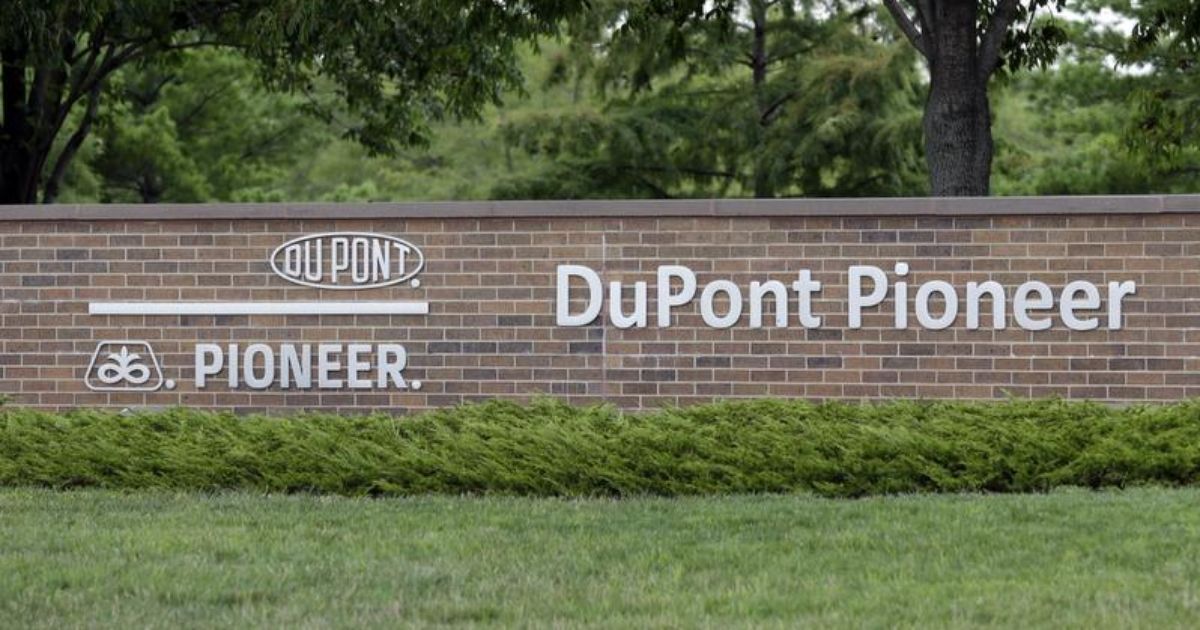Last week, drone-enabled aerial data and safety platform provider PrecisionHawk closed an $18 million Series C with the likes of Verizon Ventures, Yamaha Motor Ventures, and Japanese mobile phone network NTT Docomo. Today, the company tacked a new name onto its Series C investor list: DuPont Pioneer. According to PrecisionHawk, the international agriculture inputs and equipment provider has been one of its customers for many years.
The amount that DuPont invested was not disclosed, but total funding to date stands at $30 million, according to a press release. With a $10 million Series B in 2014, there is $2 million in funding left over for PrecisionHawk’s Series A, seed, and DuPont rounds combined.
DuPont has been noticeably absent in agriculture’s corporate venturing space with Monsanto Growth Ventures and Syngenta Ventures leading the way, and Bayer CropScience recently making its second agtech fund investment. But the company entered the precision ag space in 2014 with the launch of Encirca, a decision support software platform, which has been trialed widely across Midwest US, farmers tell AgFunderNews. Enrica uses PrecisionHawk data.
“The deepening of our relationship with PrecisionHawk is an important part of the Pioneer digital agriculture platform strategy, as well as our Encirca services offering,” Neal Gutterson, DuPont Pioneer vice president of research and development said in a press release. “Our goal is to provide growers valuable prediction-based product placement insights by incorporating elite genetics, agronomic management, and environmental variation analysis into our already successful prediction-based breeding program.”
Founded in 2010, PrecisionHawk defines itself as a terrestrial data acquisition and analysis company. Using drones, also referred to as Unmanned Aerial Vehicles (UAVs), the company collects data and analyzes it using software to provide clients with decision support. According to its website, the company handles a host of issues associated with drone operations including insurance, regulatory compliance filings, data quality checks, and a flight team including a pilot and visual observer.
In addition to the ag industry, PrecisionHawk services clients in the energy & mining, environmental monitoring, and insurance and emergency response industries. Today, it maintains offices in the US, Canada, Australia, Europe, and Argentina.
“With investors now representing the agriculture, insurance, and telecommunication industries, PrecisionHawk is well positioned to understand the nuance that will help us create unique value for all of our commercial partners,” PrecisionHawk president Christopher Dean said in the same statement.
DuPont, which announced a proposed merger with chemical company Dow in December 2015, will assist PrecisionHawk with accelerating the commercial use of drones and building new tools for farmers and agricultural professionals.
Both companies are optimistic about the role of drones in agriculture, citing reports that have estimated the economic impact of drones as exceeding $60 billion over the next decade. Other reports have indicated that the drones market could be worth nearly $2.7 billion by 2022.
PrecisionHawk isn’t the only drone company swooping up the funding. In 2015, 37 drone startups captured over $250 million in investment, constituting some of the biggest deals of the year according to AgFunder’s Investing Report for 2015.
While the future skies of agriculture drone operations seem clear, there are a few hurdles the sector will need to overcome. Some have questioned whether drones provide the enough efficiency and convenience to warrant their cost—both in terms of the price tag and time it takes to become a skilled operator. Although the applications for drones vary, today most are geared toward capturing images of farmers’ fields to create yield maps and to support decision support platforms.
The regulatory landscape for drones also presents a challenge. Currently, the commercial operation of drones is unauthorized in the US. Although the Federal Aviation Administration allows commercial operators to obtain an exemption to this rule, only certain individuals holding a pilots license could qualify.
In February 2015, the FAA teamed up with the Department of Transportation to unveil a proposed framework allowing the commercial operation of small drone devices, but it comes with some strings attached. Operators must obtain a certification before use, register their drones, and comply with various aircraft requirements.
The Series C round brings PrecisionHawk’s total funding to over $30 million. In September 2014, the company closed a $10 million Series B with NYC-based investor Millennium Technology Value Partners. USAA and Indiana University’s Innovate Indiana Fund are also investors in the company.
Have news or tips? Email [email protected]





